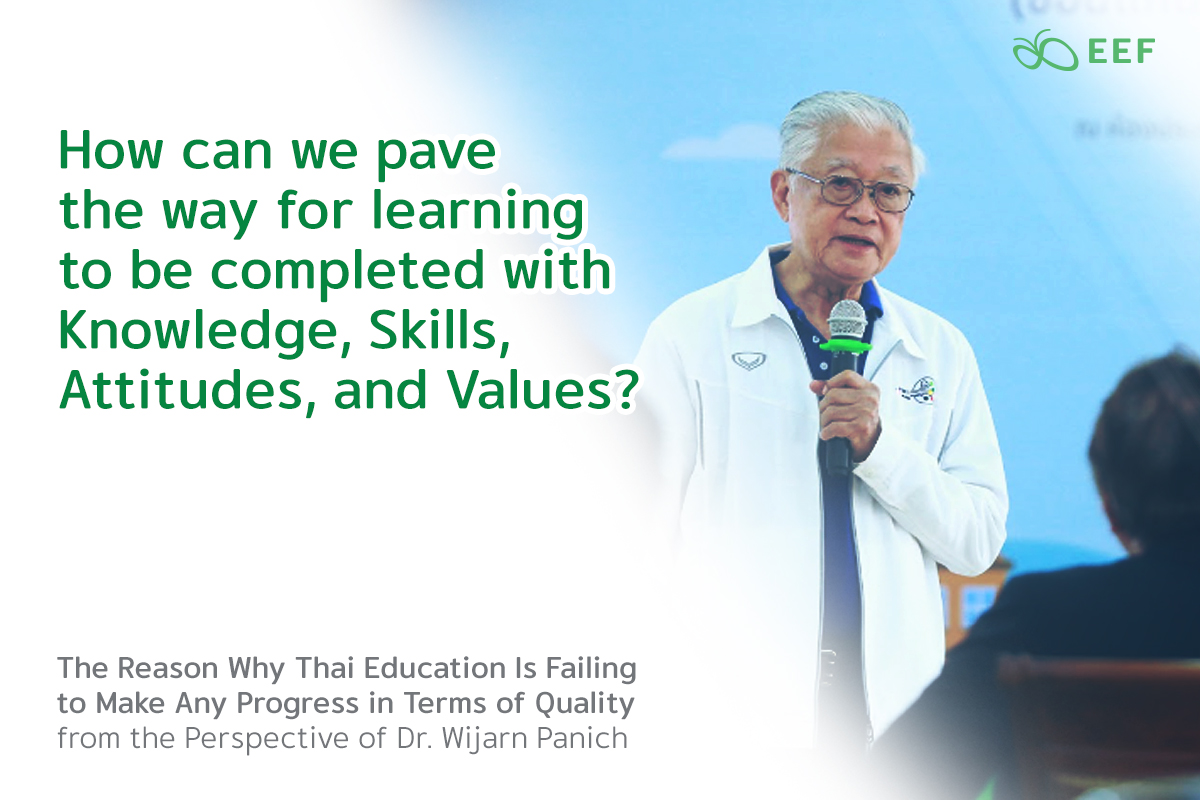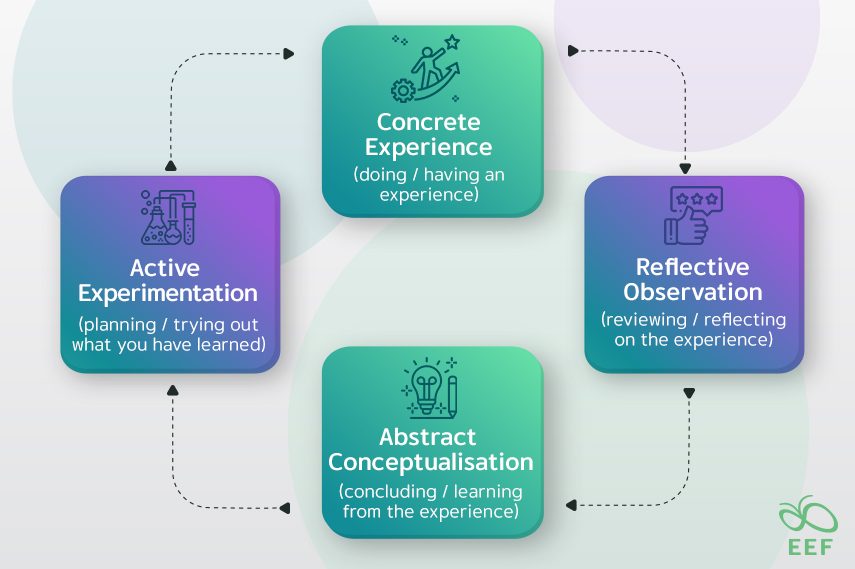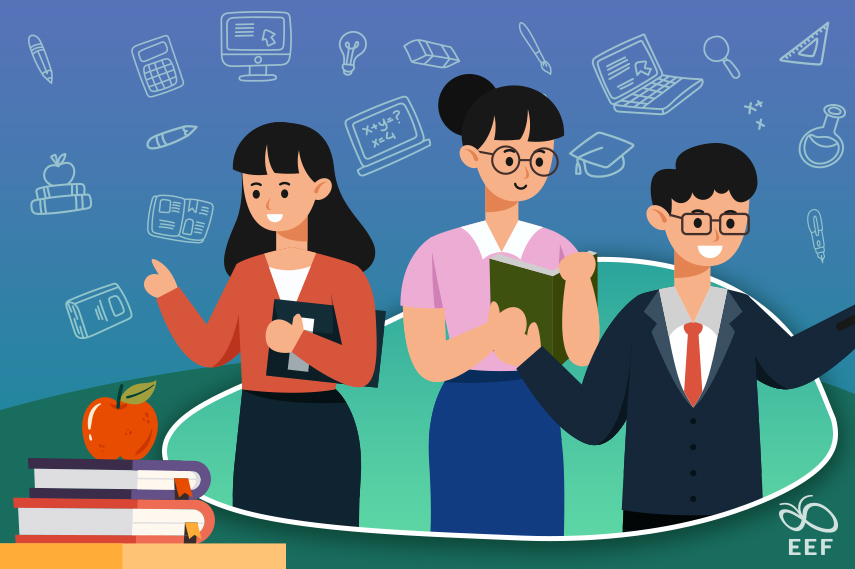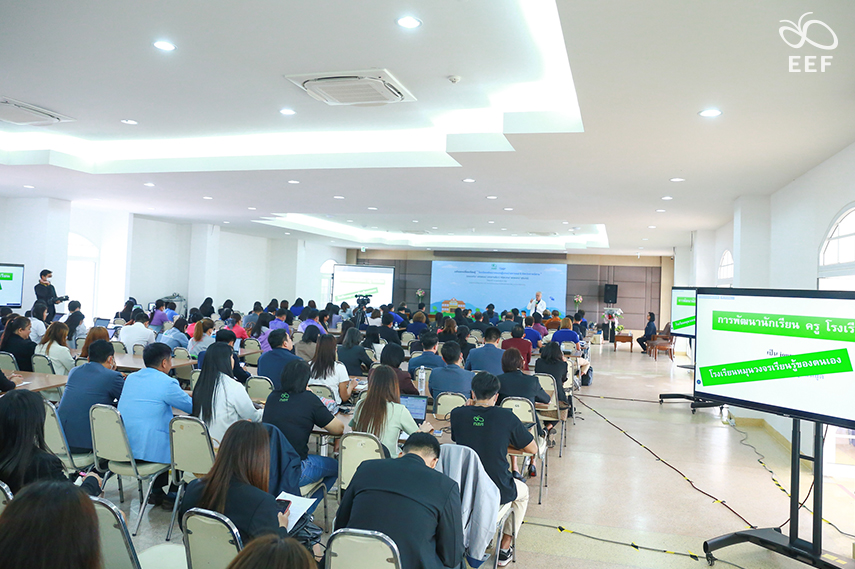
How can we pave the way for learning to be completed with Knowledge, Skills, Attitudes, and Values?
The first question to find an answer to is whether the students are learning all of these necessary components in every learning setting — be it in the classroom, outside the classroom, or in any ecosystem at school. If not, then we must start by creating an ecosystem or learning atmosphere that is conducive to creativity.
It is not only students who study – teachers should also do so continuously. Schools must gather both Tacit and Explicit Knowledge and integrate them into their culture to ensure that they are capable of fostering the development of their students. To do so, the director and teachers’ daily lives must revolve around the Professional Learning Community, or PLC — that is, they must learn from real experiences, through practical application.

The director and teachers should closely observe their students, carefully reflecting on which teaching methods have been effective and which ones have not, in order to gain a better understanding of the foundation of each of these methods as well as of how to improve them. Subsequently, they should apply what they think did not work again to construct an experience-based learning cycle. Too often, many teachers are inclined to focus overly on subject knowledge; In fact, the most meaningful learning does not come from knowledge being relayed from someone else, but rather it comes from knowledge being developed by oneself, through experimenting by implementing various teaching methods.
What is the role of the “Self-Improvement Schools” project under the supervision of the Equitable Education Fund, or EEF, in relation to schools?

To be able to develop something, we need partners who can work together to deal with unpredictable circumstances. Therefore, to better develop themselves, schools should network together.
The “Teacher and School Quality Program (TSQP)” under the supervision of EEF is a companion that encourages schools to take action, actively working toward student and teacher self-improvement. It encourages collaboration — whether with other kinds of organizations or higher education sectors, or in learning via Online PLC across areas — in order to develop students, teachers, and schools so that they can stand up for themselves.

Currently, 636 pilot schools have joined the project since its inception three years ago, and there are many more to come. This gave rise to the “Forum of Teacher and School Quality Program to the Extend Results” which invites groups of educational personnel from the various pilot schools to come share experiences and teaching methods. The main goal is to exchange best practices and learn from one another to confirm whether what we are doing is genuinely effective.
The project may have a set timeline for implementation, but it is believed that the journey of the various parties is far from over. The development of students, teachers, and schools will continue for a long time to come, in order for Thai education to make progress in terms of quality.
Source:
February 23-24, 2023: Field Visit the TSQP Schools in Khon Kaen

